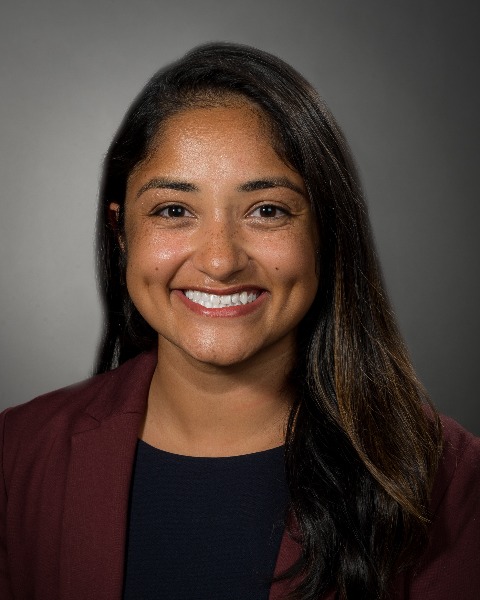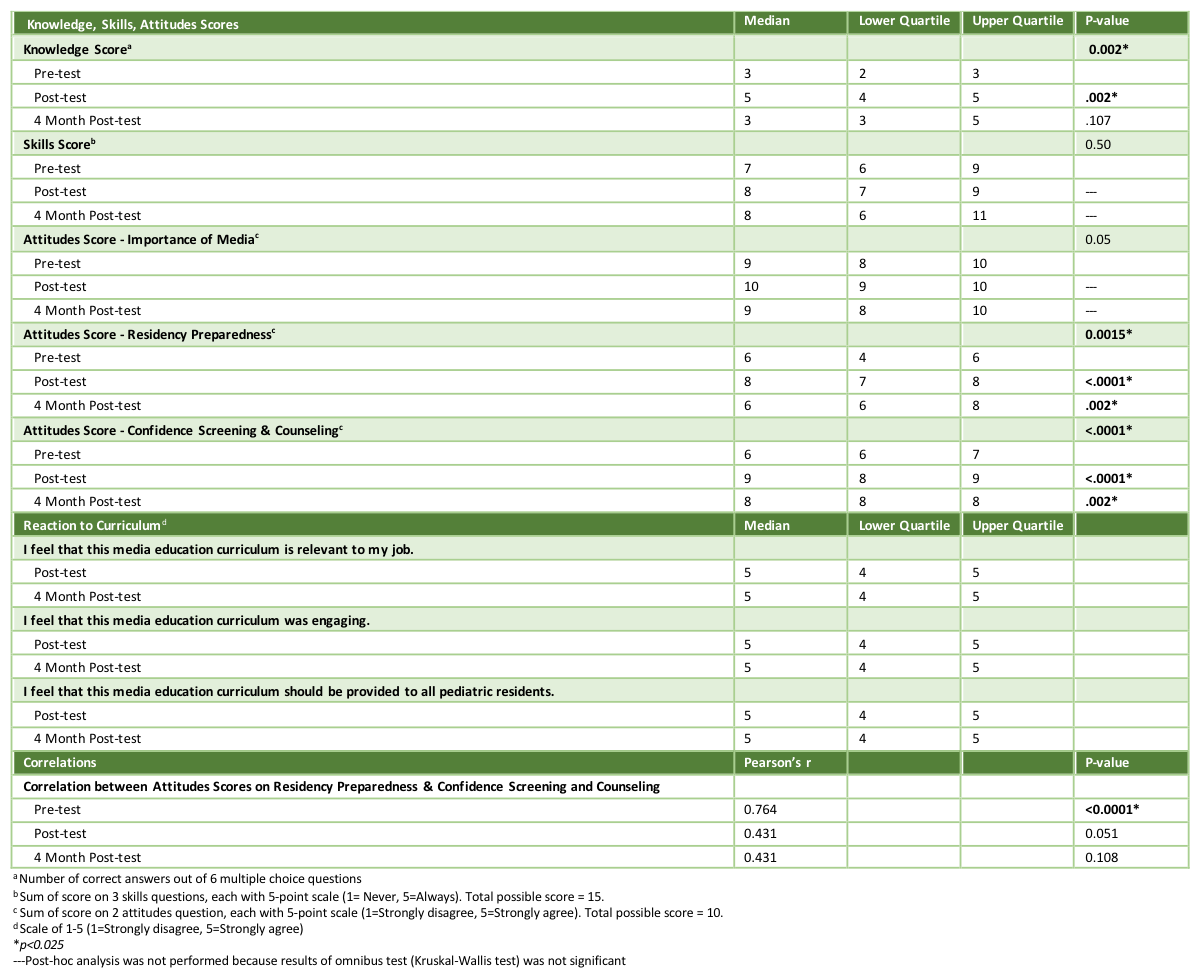Medical Education: Resident
Medical Education 14: Resident 5
493 - Implementation and Evaluation of a Novel Media Education Curriculum for Pediatric Residents
Publication Number: 493.422

Rashi Kabra, MD, MSEd (she/her/hers)
Adolescent Medicine Fellow
Cohen Children's Medical Center, Northwell Health
Cohen Children's Medical Center
Brooklyn, New York, United States
Presenting Author(s)
Background:
Despite increasing awareness of media exposure to children and adolescents and the known value of media education, residency programs lack formal media education.
Objective: This study was done to implement and evaluate a novel curriculum that targets pediatric resident knowledge, skills, and attitudes of media’s effects on children and adolescent health.
Design/Methods: An interactive and virtual curriculum was designed for pediatric residents. Participants were assigned media viewings and independent reflections prior to two small group discussions, during which they learned benefits and risks of media use, and identified screening and counseling interventions for media use. Changes in knowledge, reported skills and attitudes of pediatric residents were assessed by pre- and post-tests immediately after the curriculum and 4 months later using Kruskal Wallis tests followed by Wilcoxon rank sum tests for continuous variables and Fisher’s exact test for categorical variables.
Results: 21 residents completed the curriculum from September 2021-April 2022. Residents demonstrated improved knowledge about health effects of media immediately after the curriculum as the median out of 6 increased from 3 to 5 (p=.002), though 4 months later decreased to 3 (p=.107). Reported skills in screening about media use did not significantly change. Residents strongly agreed throughout that media use is an important health issue without significant change, with a median of 9 out of 10 on the pre-test, 10 on the immediate post-test, and 9 on the 4-month post-test. Attitudes regarding residency preparedness and confidence in screening and counseling improved, with pre-test medians of 6 and 6 out of 10 respectively, to post-test medians of 8 (p=< .0001) and 9 (p=< 0.0001), to 4-month post-test medians of 6 (p=.002) and 8 (p=.002). A significant positive correlation was found between residency preparedness and confidence in screening and counseling on pre-tests, r=0.764 (p< 0.0001). All participants found the curriculum relevant and engaging, and felt it should be continued.
Conclusion(s): A novel media education curriculum for pediatric residents was associated with improved knowledge and attitudes regarding media use as a health issue. Enhanced attitudes demonstrated sustainability. Confidence in screening and counseling was correlated with perceived residency training on media use. All residents had strong positive reactions to curriculum relevance, engagement, and continuation. Pediatric residency programs should consider similar curricula to address this pervasive pediatric health issue.
